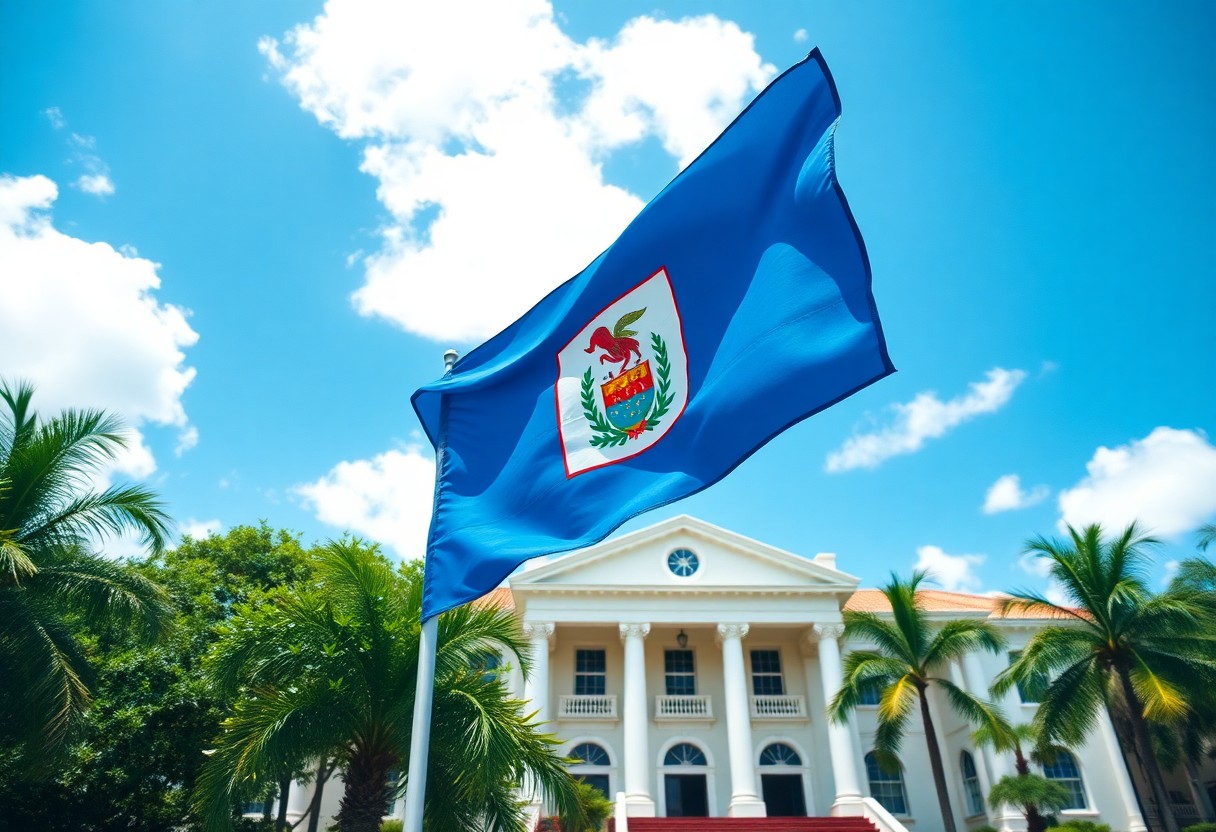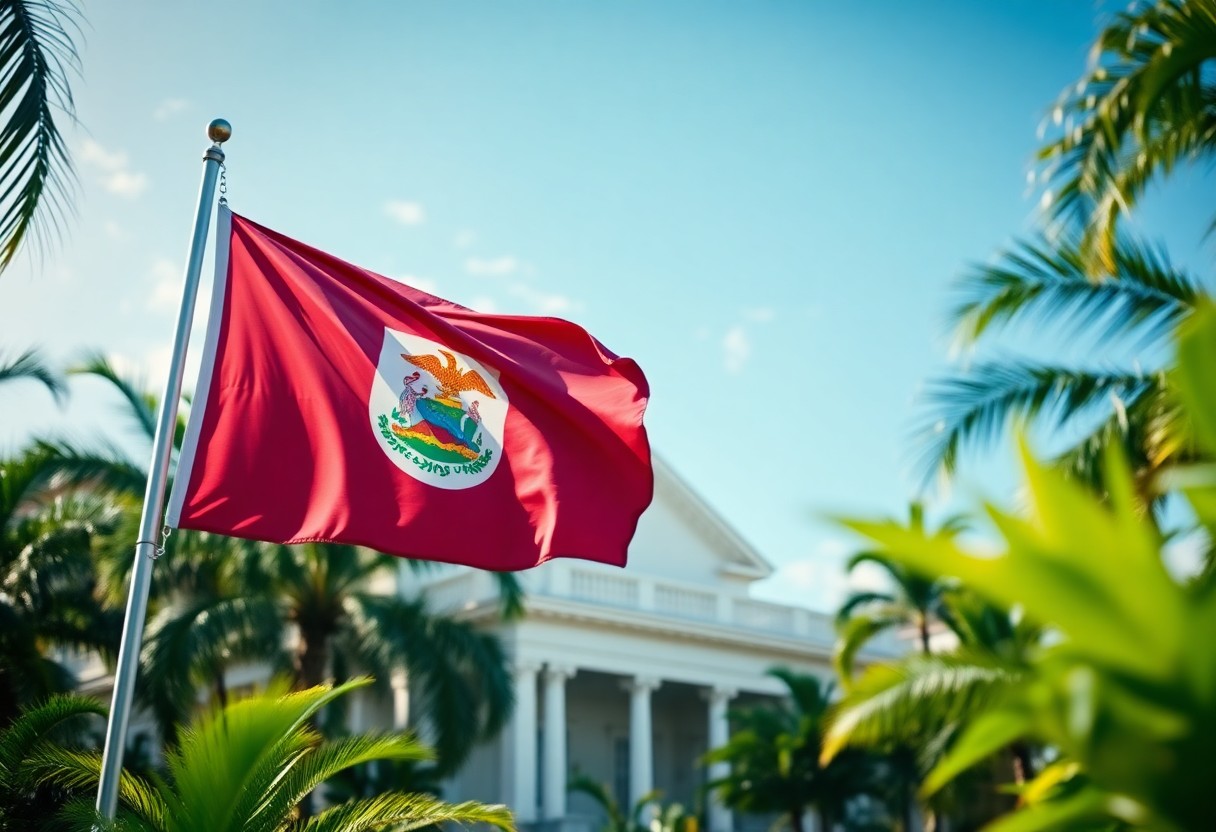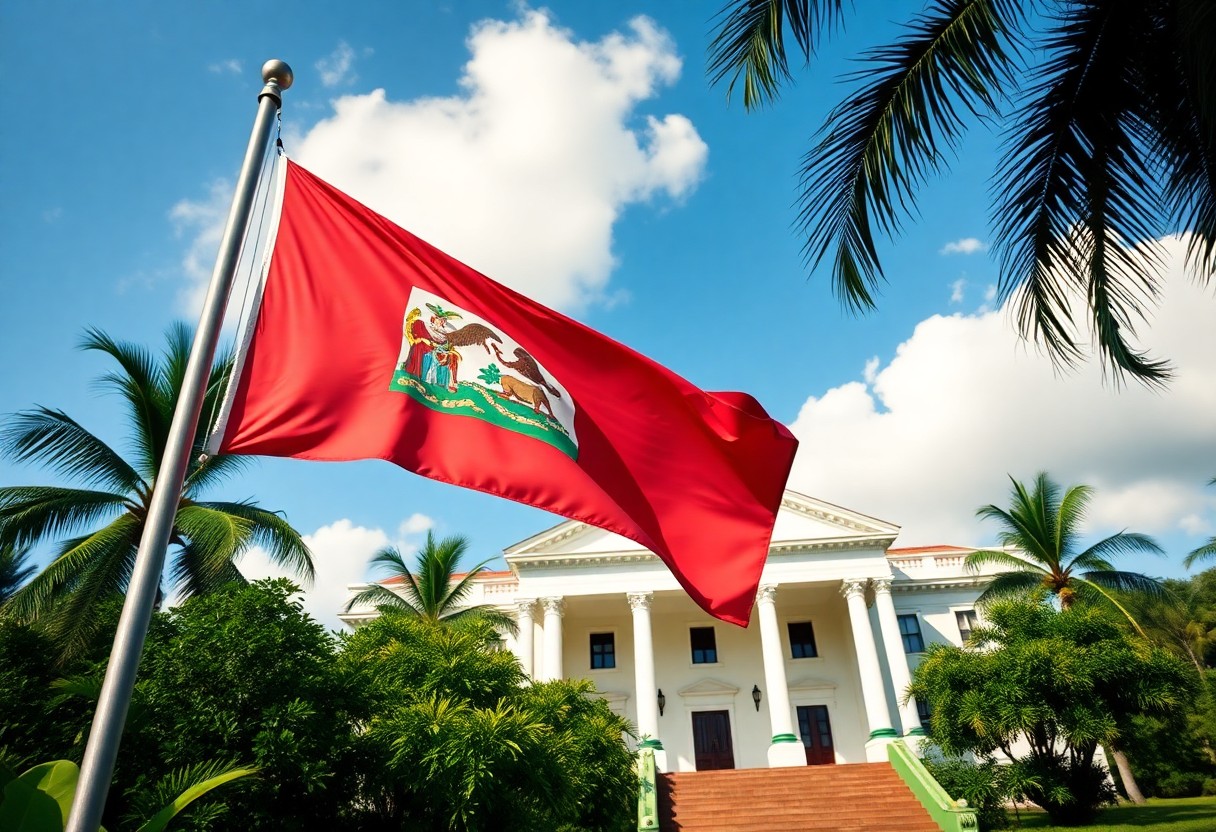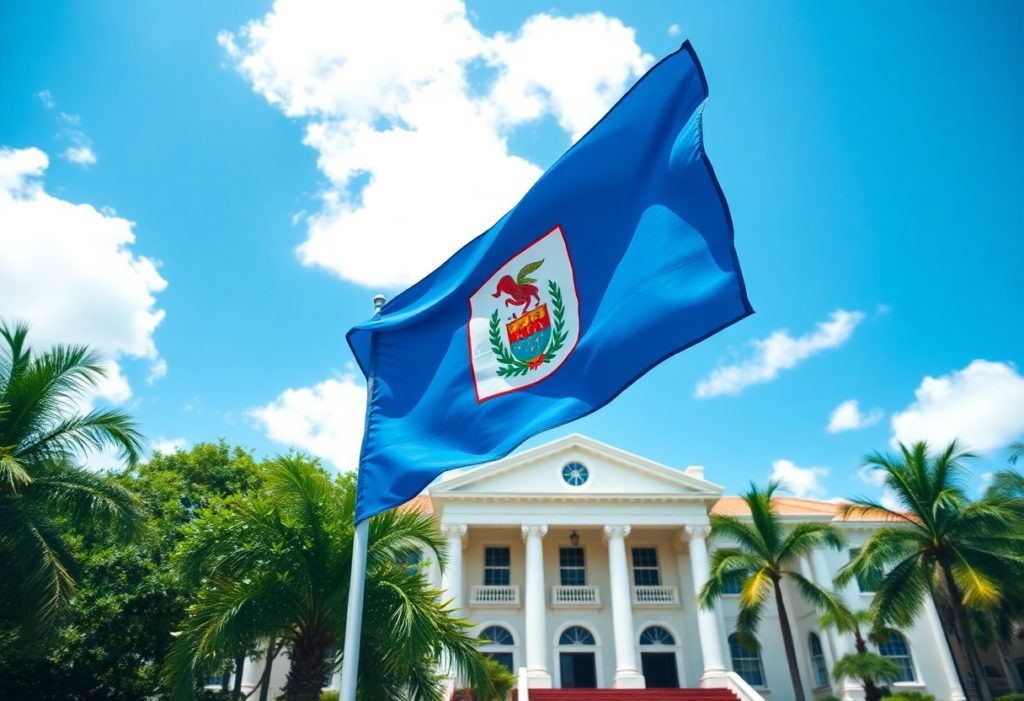Deep Dive into Belize's Journey to Independence is essential for understanding the essence of Belizean identity and its rich history. This article will explore the critical historical milestones that shaped the nation’s path to becoming an independent state. It will highlight the ongoing struggles against colonial domination, significant treaties that were signed, and the remarkable achievement of self-governance attained in 1981. These historical events not only emphasize the resilience and determination of the Belizean people but also reveal the transformative changes that led to the establishment of a democratic Belize. Join us as we delve into the significant milestones that define the national identity of Belize today.

Discovering the Vibrant Pre-Colonial Period of Belize
Prior to the arrival of Europeans, the pre-colonial era in Belize was marked by a dynamic tapestry of diverse indigenous cultures and rich histories. Various indigenous groups thrived in the region, with the Maya civilization being the most notable. These societies developed complex social structures, advanced agricultural practices, and extensive trade networks that were impressive for their time. The cultural legacy of this period laid a crucial foundation for Belize’s identity, influencing the trajectory of subsequent historical developments that would define the region. Understanding this era is vital to appreciating how the roots of Belize’s contemporary society were established and how they continue to influence its culture today.
Highlighting the Remarkable Achievements of Maya Civilizations
A comprehensive examination of pre-colonial Belize must prominently showcase the extraordinary accomplishments of the Maya civilizations. These ancient societies not only flourished but also achieved remarkable heights in various fields such as architecture, astronomy, and agriculture. Visitors and residents alike can explore breathtaking ruins like Caracol and Lamanai, which stand as enduring testaments to the Maya's sophisticated lifestyle, demonstrating their profound understanding of urban planning and natural sciences. The ingenuity and creativity of the Maya continue to fascinate historians and archaeologists, revealing the advanced nature of their societies and their lasting impact on Belizean heritage.
Exploring Belize’s Rich and Diverse Cultural Heritage
At the heart of Belize’s identity is a profound and intricate cultural heritage. This rich tapestry is woven from the complex interplay of indigenous, African, and European influences that have shaped modern Belizean society. The diversity of this heritage is vividly reflected in the multitude of languages, traditions, and customs that enrich daily life in Belize, contributing to a unique cultural landscape celebrated by its people. The variety of cultural expressions, from traditional music to culinary delights, showcases the vibrancy of Belizean life.
Furthermore, cultural heritage plays a vital role in shaping Belize’s identity. The architectural marvels of the Maya, along with their agricultural innovations, resonate deeply within contemporary society. Additionally, the contributions of African and Creole populations have significantly enriched Belize’s artistic expressions, musical traditions, and culinary arts. This fascinating blend of cultures fosters a strong sense of belonging and pride among Belizeans while also serving as a reminder of the historical challenges faced by these diverse groups throughout Belize’s history, reinforcing the importance of unity in diversity.
Examining the Era of British Honduras: A Critical Historical Chapter
The period during which Belize was known as British Honduras marks a significant chapter characterized by British colonial rule. Spanning from the 18th century to the mid-20th century, this era witnessed the development of a distinct cultural identity profoundly influenced by British governance, economic pursuits, and local resistance movements. It was during this time that critical changes emerged within political and administrative frameworks, ultimately laying the groundwork for Belize’s relentless pursuit of independence and self-determination.
A Comprehensive Timeline of British Colonial Rule in Belize
Following its designation as a British colony in 1862, British Honduras underwent substantial developments, including the introduction of the British legal system and the establishment of essential infrastructure. Over the years, the colony experienced significant resistance from the local population, particularly highlighted by events such as the 1934 labor riots. These uprisings played a pivotal role in galvanizing support for self-governance among the Belizean people, reflecting their desire for change and self-determination.
The Enduring Influence of British Colonial Rule on Belizean Society
Above all, the influence of British colonial rule has indelibly shaped Belizean society and governance structures. The introduction of the English language, along with legal frameworks and educational systems, played a crucial role in modernizing the nation. While this relationship presented certain challenges, it also established essential foundations for the democratic governance that Belize enjoys today. The coexistence of various cultural influences continues to define the Belizean experience in a unique way, blending tradition with modernity.
Moreover, the impact of British colonial rule is evident in numerous aspects of Belize’s contemporary society. The English language remains the official language, facilitating communication both locally and internationally. Additionally, the legal and governance frameworks established during colonial times laid the groundwork for Belize's current legal system. However, it is crucial to recognize that this influence was accompanied by the exploitation of resources and cultural imposition, which have had lasting effects on Belizean demographics and national identity. Understanding these multifaceted dynamics is essential for grasping Belize’s complex journey toward independence and recognizing the challenges that remain today.

Charting the Pivotal Path to Independence for Belize
Any discussion about Belize’s journey towards independence must acknowledge the significant events that laid the groundwork for this historic transformation. The path to freedom involved responding to colonial pressures, fostering a growing sense of nationalism, and advocating for greater self-determination among the Belizean populace. The mid-20th century marked a surge in political activism, which tirelessly laid the foundation for Belize’s ultimate liberation from British colonial rule, highlighting the importance of civic engagement and collective action.
Recognizing Key Historical Figures Who Shaped Belize’s Independence Movement
Prominent historical milestones along Belize’s path to independence featured influential individuals such as George Cadle Price. Understanding their leadership and vision allows you to appreciate how these figures mobilized public support for self-governance, significantly shaping the future and identity of the nation. Their contributions and sacrifices laid the groundwork for the democratic principles that Belizeans cherish today, and their legacies continue to inspire future generations.
Engaging in Strategic Negotiations for Self-Governance
During the pivotal discussions for self-governance, representatives of the Belizean people stepped forward, proposing transformative strategies that would alter the course of history. With a proactive and determined approach, Belizean leaders actively engaged in discussions with British representatives regarding self-governance. These negotiations proved to be a pivotal turning point, as Belize sought to assert its autonomy in managing its own affairs. The formation of political parties and organized movements played an essential role in articulating the demands for change from the Belizean populace. As tensions mounted, the negotiations became increasingly intense, reflecting the urgency felt by Belizeans for autonomy. This critical period culminated in various constitutional amendments, setting the stage for Belize’s eventual independence from colonial oversight.
Notable Milestones on the Journey to Independence
A multitude of significant milestones marked Belize’s arduous journey to independence. From early legislative initiatives to pivotal events, each moment played a crucial role in the quest for self-determination. As you examine these milestones, you will come to appreciate their profound impact on the nation’s identity and the ongoing struggle for sovereignty. Each step forward was fueled by the collective resolve of the Belizean people.
Important Legislative Developments Leading to Self-Governance
One of the key early legislative developments was the introduction of the Internal Security Act in 1961. This act established a framework for self-governance, permitting a limited degree of autonomy in local governance matters. This crucial legislation marked a watershed moment, encouraging Belizeans to actively participate in political processes and advocate for further reforms. The act served as a catalyst for increased political awareness and engagement among the population, fostering a sense of ownership over their governance.
Key Events from 1964 to 1981 that Shaped Belize’s Political Landscape
In the years leading up to Belize’s independence, significant events from 1964 to 1981 played a crucial role in shaping the nation’s political landscape. These moments included the emergence of influential political leaders and nationalist movements, which laid the groundwork for achieving self-governance. The 1964 Elections ushered in a new era of political engagement by expanding voting rights to a broader segment of the Belizean population. The 1969 Belize-Guatemala tension further intensified calls for autonomy and unity among citizens. The 1973 Constitution established a more robust governance framework, granting additional rights and liberties to the populace. Ultimately, these developments, coupled with the declaration of independence in 1981, defined Belize’s trajectory toward establishing a national identity and self-rule, culminating in a proud moment for all Belizeans.

Addressing the Challenges and Developments in Post-Independence Belize
In the years following its independence in 1981, Belize encountered a series of challenges and opportunities in its quest to shape a cohesive national identity and effective governance. The nation undertook significant efforts to establish a stable political framework while fostering economic growth and addressing pressing social issues. Initiatives were directed toward enhancing infrastructure, education, and healthcare systems, all with the aim of improving the quality of life for every Belizean in this young and evolving democracy. The post-independence era has been marked by both achievements and obstacles that continue to influence Belize’s development.
Understanding the Political Structure of Belize: A Pillar of Governance
The political structure is fundamental in determining the governance of Belize. You will find that the country operates as a parliamentary democracy with a clear separation of powers among the executive, legislative, and judicial branches. The Prime Minister leads the government, while the legislative body consists of the House of Representatives and the Senate. This political system encourages regular elections and representation of diverse political views, promoting active civic engagement among the populace. The democratic processes established post-independence have allowed Belizeans to voice their opinions and participate actively in shaping their government.
The Importance of Commonwealth Membership for Belize’s Global Standing
Upon gaining independence, Belize became a member of the Commonwealth of Nations, which has been instrumental in fostering international relationships and support. This membership provides Belize with access to a network of countries that share similar democratic values, enabling participation in collaborative initiatives in sectors like education and trade. The Commonwealth connection enhances Belize's opportunities for development and cooperation.
A significant advantage of your Commonwealth membership is the opportunity to engage in dialogues regarding regional issues that impact Belize. Participation in this organization enhances Belize’s global stature while also fortifying connections with other former British colonies. Additionally, you will find that Commonwealth nations often provide developmental assistance, which can be pivotal in addressing local challenges. However, this membership also entails a commitment to uphold democratic principles and human rights, ensuring that Belize continues to evolve as a respected member of the global community, reinforcing its dedication to shared values.
Navigating the Contemporary Challenges Facing Belize’s Development
It is essential to recognize that Belize faces a multitude of contemporary challenges that significantly impact its stability and growth. These challenges encompass economic issues, social considerations, governance, and environmental factors that collectively shape the nation’s future trajectory. Addressing these pressing issues is vital for sustaining progress, as they directly affect the daily lives of Belizeans and the overall development of the country. The need for comprehensive strategies to tackle these challenges is more crucial than ever.
Examining Economic Challenges in Modern Belize
Modern economic challenges in Belize include high unemployment rates and an over-reliance on tourism as a primary economic driver. These factors contribute to economic instability and directly influence the livelihoods of local businesses. Fluctuations in global tourism trends can have profound effects on Belize’s economy, placing additional pressure on government resources and public services. Diversifying the economy and seeking sustainable development initiatives are essential for creating long-term stability and resilience.
Addressing Social Issues in Belizean Society
In Belize, social issues such as poverty and inequality continue to present significant challenges. Factors like limited access to education and healthcare services contribute to disparities among various communities, adversely affecting the overall quality of life for Belizeans. Addressing these social challenges is imperative for fostering a more equitable society.
Moreover, it is important to recognize that social challenges in Belize are intricately linked to prevailing economic conditions. The high rates of poverty directly affect access to essential services, and inequalities in education can hinder future opportunities for many. Nevertheless, community initiatives and government programs are proactively addressing these concerns, fostering a sense of hope and resilience among the population. By strengthening social bonds and investing in education and healthcare, Belize can move closer to achieving a more equitable society for all its residents, ensuring that the benefits of progress are shared widely.
Reflecting on Belize’s Remarkable Journey to Independence
Reflecting on Belize’s journey to independence allows you to appreciate the significance of key historical milestones that shaped the nation. You can see the ramifications of the 1964 and 1973 constitutional changes that laid the groundwork for self-governance. You also recognize the importance of the 1975 Treaty of Friendship with Guatemala in addressing long-standing territorial disputes. Ultimately, the official independence achieved on September 21, 1981, marked a transformative chapter in Belize’s history, allowing every Belizean to celebrate national identity and sovereignty. Each of these milestones played a pivotal role in molding Belize into the nation it is today, fostering a sense of unity and pride among its citizens.
Common Questions about Belize’s Path to Independence
What Key Historical Events Contributed to Belize Gaining Independence?
Belize's journey to independence was marked by a series of significant events. The movement for independence gained momentum in the 1940s, culminating in 1981 when Belize officially became free from British colonial rule. Critical milestones during this period included the establishment of a constitutional government in 1964 and the organization of self-governing elections, which were crucial in mobilizing public support for independence.
Who Were the Influential Figures Involved in Belize’s Independence Movement?
A number of key figures played pivotal roles in the independence movement. George Price, the leader of the People’s United Party, was central to advocating for Belize's independence. Other notable individuals included Philip Goldson and various members of political organizations that actively campaigned for self-determination, demonstrating the power of collective activism in achieving national goals.
How Did the British Government Respond to Belize’s Independence Movement?
The British government initially expressed resistance to independence but eventually recognized Belize’s readiness for self-rule. This shift occurred as they observed the growing political awareness and activism among Belizeans. British officials collaborated with local leaders to facilitate a smooth transition towards independence, reflecting an evolving understanding of Belize’s aspirations for autonomy.
The Article How Belize Gained Independence: Key Historical Milestones appeared first on Belize Travel Guide
The Article Belize Independence: Key Historical Milestones Explained Was Found On https://limitsofstrategy.com


